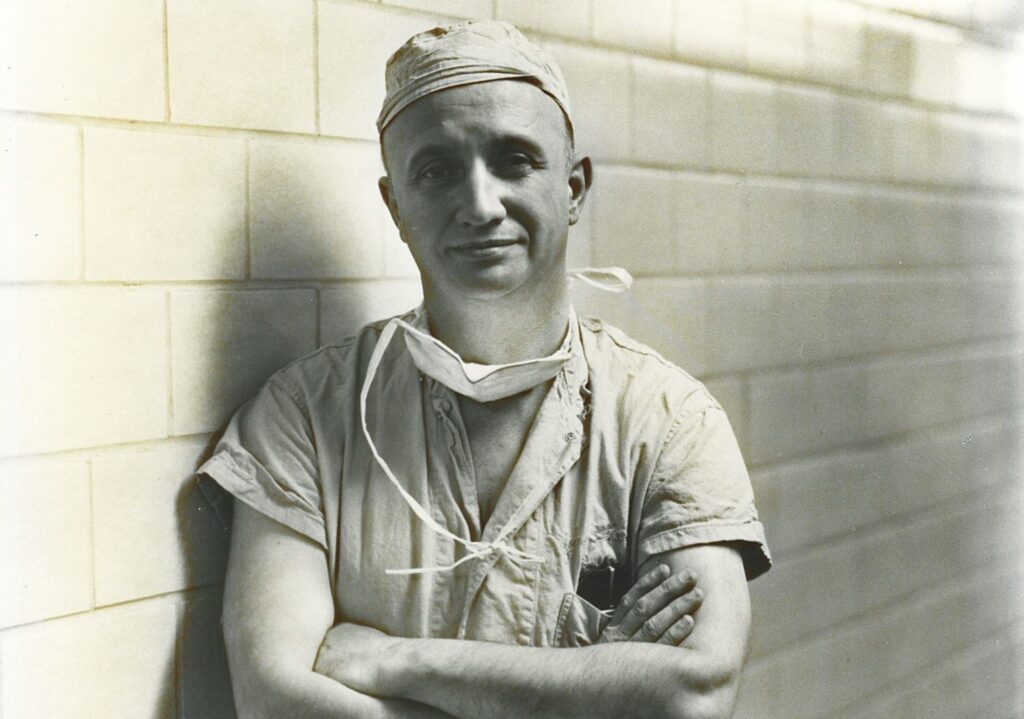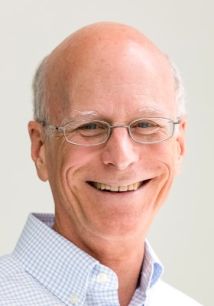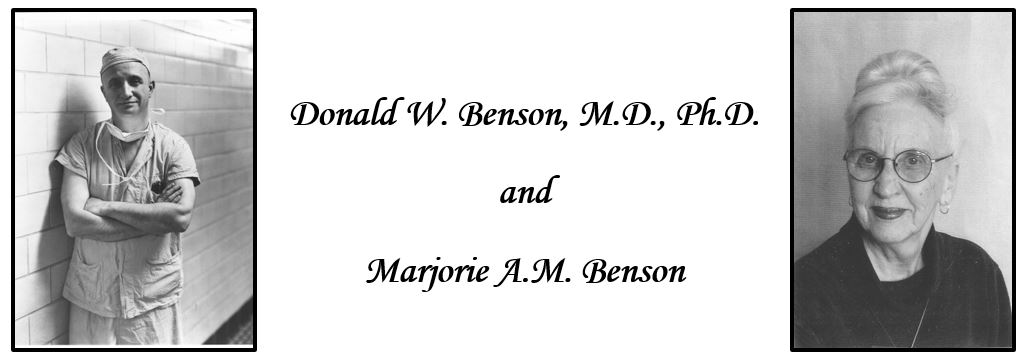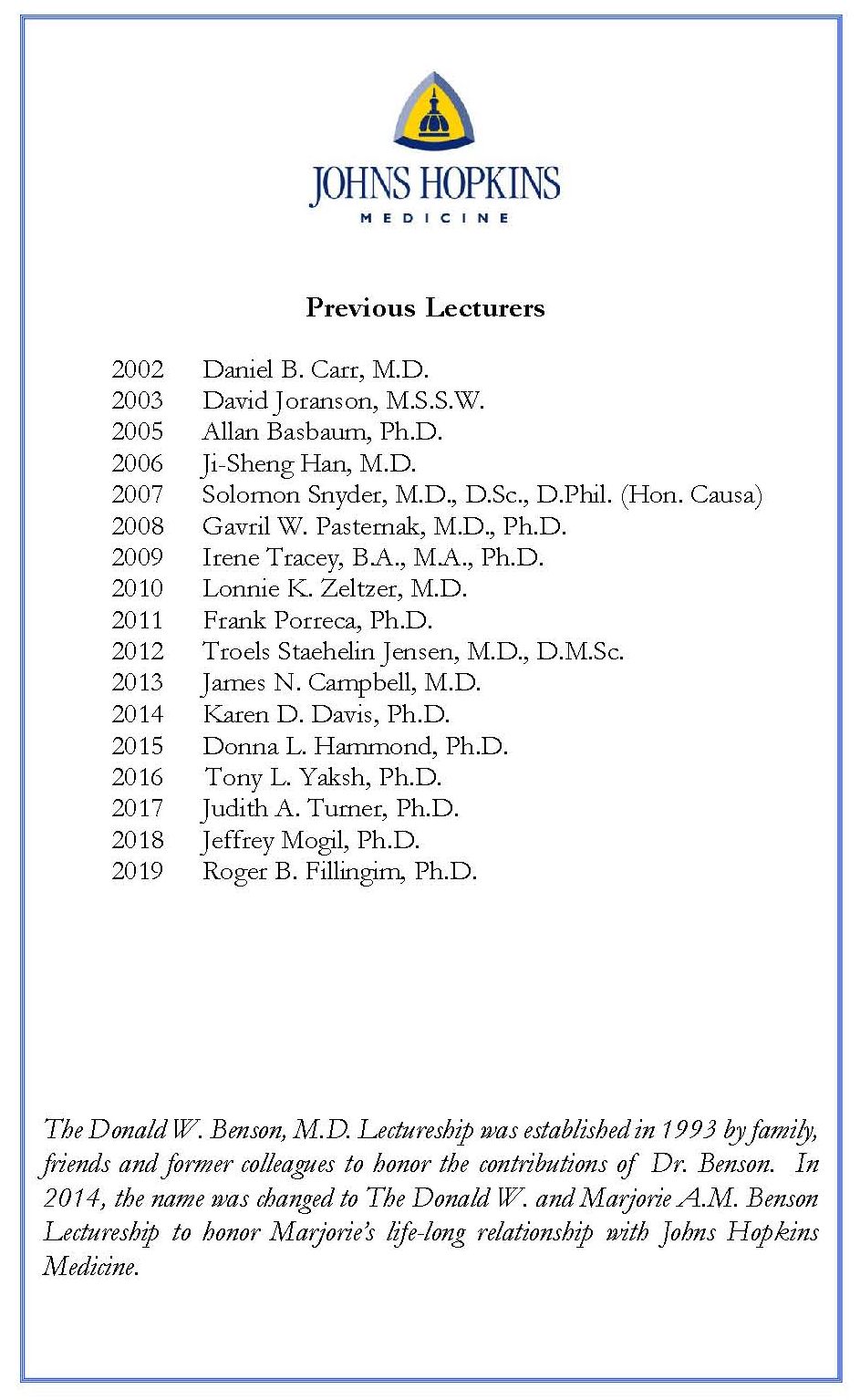
The Donald W. Benson, MD Lectureship was established in 1993 by family, friends and former colleagues to honor the contributions of Dr. Benson. In 2014, the name was changed to The Donald W. and Marjorie A.M. Benson Lectureship to honor Marjorie’s life-long relationship with Johns Hopkins
Medicine.
Eighteenth Donald W. And Marjorie A. M. Benson Lecture on Pain Medicine
“Getting Pain Research Unstuck”
Thursday, May 4, 2023, Hurd Hall
James C. Eisenach, MD
Francis M. James III, MD Professor of Anesthesiology
Professor, Anesthesiology
Wake Forest University School of Medicine
 Dr. Eisenach is the FM James, III Professor of Anesthesiology, Vice Chair for Research, and Director of the Pain Mechanisms Laboratory at Wake Forest School of Medicine. His contributions to research since 1985 lie primarily in the pharmacology and neurobiology of pain and analgesia in chronic pain with focus on the spinal cord, holding Investigational New Drug approvals for testing of 5 compounds for intrathecal injection and having directed the pivotal trial for FDA approval of epidural clonidine in the treatment of intractable cancer pain. He is a translational scientist with approximately half of his funding and publications in clinical and half in laboratory research. As Editor-in-Chief of Anesthesiology (2007-2016), he led a multi-journal effort to improve the safety of investigation of novel compounds for spinal or epidural use and established reporting requirements for preclinical and observational trials accompanied by application of software to assure compliance with those requirements. As President & CEO of the Foundation for Anesthesia Education and Research (2016-present) he has helped to advance and enlarge efforts to increase the pipeline of physician scientists in anesthesiology through a restructuring of its Board of Directors and through several strategic initiatives. He has given two dozen eponymous lectures since 1995, including the Rovenstine Lecture for the American Society of Anesthesiologists, the William Fordyce Lecture for the American Pain Society, and the Olof Norlander Lecture for the Swedish Society of Anesthesiology. Awards include the Excellence in Research Award from the American Society of Anesthesiologists, the John J. Bonica and Gaston Labat Awards from the American Society of Regional Anesthesia, and the Distinguished Alumnus Award from Mayo Clinic, Rochester. In 2015 he was elected to the National Academy of Medicine.
Dr. Eisenach is the FM James, III Professor of Anesthesiology, Vice Chair for Research, and Director of the Pain Mechanisms Laboratory at Wake Forest School of Medicine. His contributions to research since 1985 lie primarily in the pharmacology and neurobiology of pain and analgesia in chronic pain with focus on the spinal cord, holding Investigational New Drug approvals for testing of 5 compounds for intrathecal injection and having directed the pivotal trial for FDA approval of epidural clonidine in the treatment of intractable cancer pain. He is a translational scientist with approximately half of his funding and publications in clinical and half in laboratory research. As Editor-in-Chief of Anesthesiology (2007-2016), he led a multi-journal effort to improve the safety of investigation of novel compounds for spinal or epidural use and established reporting requirements for preclinical and observational trials accompanied by application of software to assure compliance with those requirements. As President & CEO of the Foundation for Anesthesia Education and Research (2016-present) he has helped to advance and enlarge efforts to increase the pipeline of physician scientists in anesthesiology through a restructuring of its Board of Directors and through several strategic initiatives. He has given two dozen eponymous lectures since 1995, including the Rovenstine Lecture for the American Society of Anesthesiologists, the William Fordyce Lecture for the American Pain Society, and the Olof Norlander Lecture for the Swedish Society of Anesthesiology. Awards include the Excellence in Research Award from the American Society of Anesthesiologists, the John J. Bonica and Gaston Labat Awards from the American Society of Regional Anesthesia, and the Distinguished Alumnus Award from Mayo Clinic, Rochester. In 2015 he was elected to the National Academy of Medicine.

Donald W. Benson was born in Jamestown, New York in 1921, and earned his bachelor’s degree in science from the University of Chicago in 1949. He attended the University of Chicago Pritzker School of Medicine and earned his medical degree in 1950. Following his internship in Buffalo, New York, and his residency in anesthesiology at the University of Chicago Clinics, Dr. Benson remained at the University of Chicago as a faculty member in anesthesiology and, in 1957, received his doctoral degree in pharmacology.
Marjorie Ann Maulsby Benson was born in St. Paul, Minnesota in 1923, but grew up on the family farm near South Haven, Michigan. Her parents would work the farm during the summer months. Her father would teach school and her mother would teach piano in town during the winter months. Thus, Marjorie’s training as a pianist began at an early age and continued when she attended North Park College and the American Conservatory of Music in Chicago, Illinois. She won the Young Artists’ Competition of the Society of American Musicians, making her formal concert debut at Chicago’s Kimball Hall in November 1942. It was while attending North Park that Marjorie met her future husband. Donald and Marjorie where married in 1945.
In 1956, the Johns Hopkins School of Medicine recruited Dr. Benson as an Associate Professor of Anesthesiology and Anesthesiologist-In-Charge at the Johns Hopkins Hospital. At that time, anesthesiology at Johns Hopkins was simply a support service. One of Dr. Benson’s major accomplishments was establishing a full-fledged residency program in anesthesiology and recruiting top-caliber applicants.
Dr. Benson promoted the use of ventilators in surgery and clinical care. While in Chicago, he and a colleague developed a unique positive-pressure ventilator. At Johns Hopkins, Dr. Benson used these ventilators during extensive operations and in the immediate postoperative period. Perhaps one of Dr. Benson’s most important contributions to Johns Hopkins was his role in developing a surgical intensive care unit. He began lobbying for an intensive care unit in the early 1960s and spent almost a decade making it a reality. By the late 1960s, anesthesiology at Johns Hopkins matured into subspecialties including cardiac, obstetric, and ophthalmological anesthesiology thanks to Dr. Benson’s leadership.
After the move to Baltimore, Marjorie became active in the music community, giving frequent recitals and sometimes accompanying her husband who was an accomplished tenor. She was the featured soloist on two occasions with the Baltimore Symphony Orchestra in the early 1960s. Marjorie also excelled as hostess for the yearly Anesthesiology parties, establishing enduring friendships with the faculty and staff.
In 1974, Dr. Benson returned to the University of Chicago as Professor and Chairman of the Department of Anesthesiology. He remained at the University of Chicago until his death in 1985 at age 63. Marjorie continued giving recitals after the move back to Chicago. She returned to the American Conservatory of Music and graduated with a Doctor of Musical Arts degree in 1987. She was active as a community volunteer in Hyde Park, as well as with the Chicago Symphony and the Newberry Library, and directed the music program at her retirement community in Chicago until her death in August 2013 at age 90.

Upcoming Grand Rounds
- 5/11/2023: Quality Assurance Committee Meeting
- 5/18/2023: Visiting Professor Alice Coombs
- 5/25/2023: Patient-Based Learning Discussion
- 6/1/2023: Visiting Professor Lee Fleisher
- 6/8/2023: Quality Assurance Committee Meeting
- 6/15/2023: Beattie Lectureship (tentative)
- 6/22/2023: Patient-Based Learning Discussion
- 6/29/2023: David Berman, MD